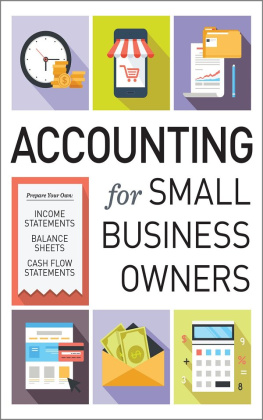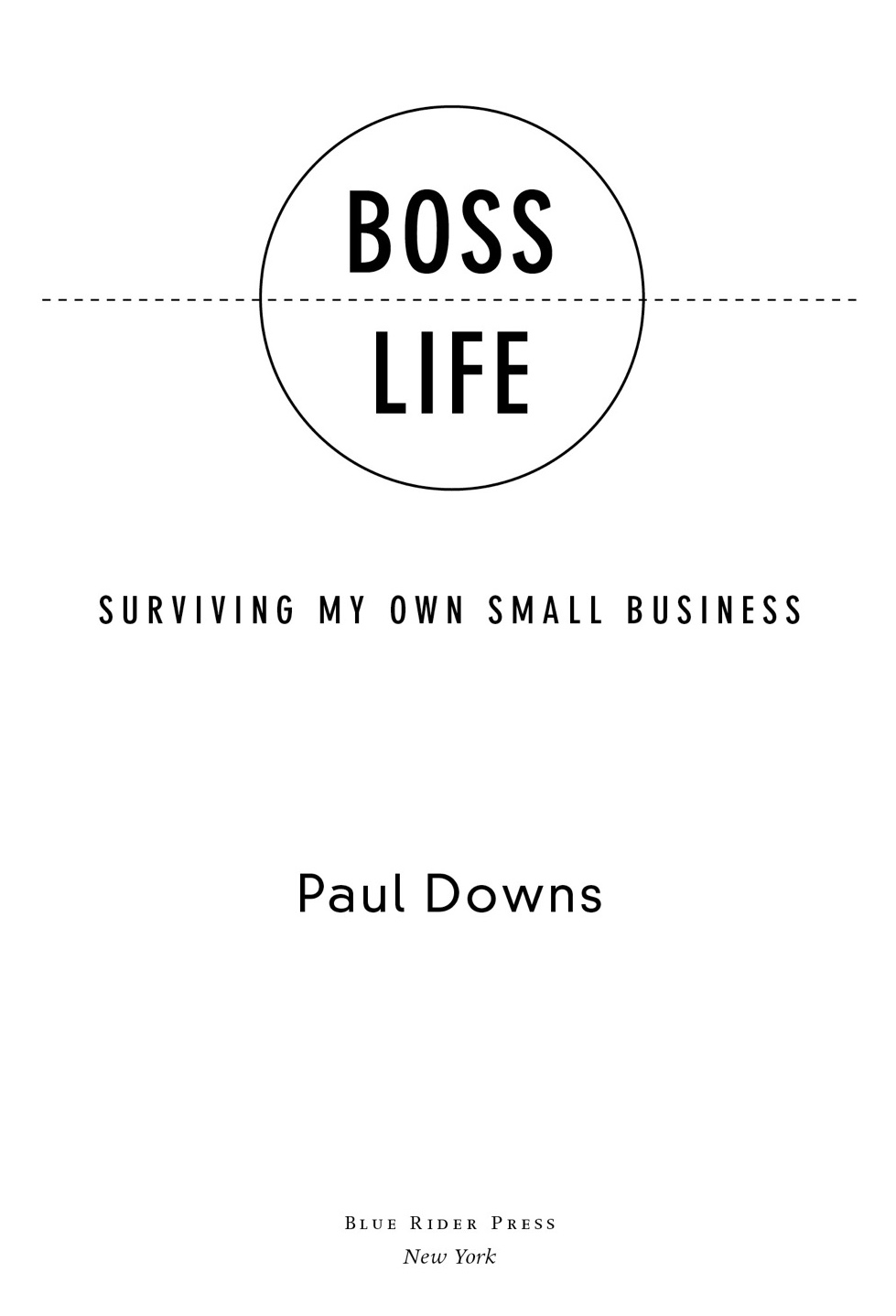Penguin supports copyright. Copyright fuels creativity, encourages diverse voices, promotes free speech, and creates a vibrant culture. Thank you for buying an authorized edition of this book and for complying with copyright laws by not reproducing, scanning, or distributing any part of it in any form without permission. You are supporting writers and allowing Penguin to continue to publish books for every reader.
Blue Rider Press is a registered trademark and its colophon is a trademark of Penguin Random House LLC
Downs, Paul.
Boss life : surviving my own small business / Paul Downs.
p. cm.
1. CabinetmakersUnited States. 2. Small businessUnited StatesManagement. 3. New business enterprisesUnited StatesManagement. I. Title.
Preface
Ive been living the boss life since 1986. I own a small company that builds custom furniture. I started fresh out of college, with no experience. Ever since, my business has been my life, my education, and my struggle.
When I began, I had no training as a businessman and no mentors to help me. I just wanted to make stuff and have fun. I found that I was good at designing products and making sales, and the business started to grow. In 1987, I hired my first employee, and soon found myself struggling with management, cash flow, taxes, and all the other details required to keep a business running. After globalization and the Internet brought new competition and new opportunity, my company experienced unsustainable growth and, in 2008, a devastating crash. But weve enduredand even had one very profitable year. I am a survivor, but not a financial success.
In 2010, by sheer luck, I was given the chance to write about my experiences in The New York Times for their Youre the Boss blog. I became a regular contributor. Ive used that forum to describe the shabby treatment that business owners suffer at the hands of large and powerful institutions, in particular the health insurance and credit card industries. The main focus of my writing, though, has been my own company.
I decided to tell the difficult parts of my story, concentrating on my deficiencies as a businessman. I have written about fighting with my former partner, struggling with cash flow and unhappy customers, firing employees, and dealing with a rapidly changing economic landscape.
Many readers have written to tell me of their own struggles, and thanked me for publicly airing my many failures. Apparently a humble and honest look at small business life is rare. But Ive found myself struggling with the limits of the blog format. Complex and sensitive situations must be oversimplified or omitted.
This book will be an opportunity to dig deeper into my experiences. It is an accurate portrait of a real business, the boss who leads it, the people who work in it, and the challenges we face. I hope that I can promote a better understanding of the factors that drive the behavior of small business owners and, by extension, show how a significant part of our economy functions. Theres a lot of chatter about job creators from people who have never created a job. Politicians make rules, but arent required to follow them. Employees complain without understanding why bosses act the way they do. And prospective entrepreneurs gamble their future without a clear picture of the challenges they will face. All these people need to know the other side of the story. This book is for them.
Some disclaimers: the world of woodshops is almost entirely a male domain. I dont know why this is, other than tradition. I have hired women whenever I found one who was qualified, but they are a very small percentage of the total workforce. In order to simplify the language of this book, I use the male form of certain common nouns, craftsmen and salesmen in particular. Please do not take this as a denigration of women who perform those roles.
The names of some people and customers have been changed, and the quoted dialogue is my best recollection of what was said at the time. That said, all the events in the book happened. If this account offends anyone, my apologies in advance.
Introduction
If this were a standard business book, I would tell you all the smart things I did to achieve financial success, and maybe trot out a few mistakes to show some humility. Unfortunately, Im no business genius and Im not rich. My story has neither tidy conclusions nor a triumphant ending. So this book will be different.
Id like to tell you what happened to my company in 2012, as we struggled to replicate profits earned in the previous year. We started strong, but then sales took a puzzling turn for the worse. The vast majority of our clients were delighted with our work, but a couple of them werent satisfied with reasonable efforts and cost us huge amounts of money. I presided over a very good crew, except for a couple of workers who gave me serious trouble. We made some money, then lost a whole lot more, then clawed most of it back. Meanwhile, my complicated family life couldnt be ignored. This is real life. The triumph and tragedy of small business. The uncertainty and challenges of being the boss.
What do I mean by boss? Its commonly understood to mean someone whos in charge of others, but that could be a middle manager in a big corporation. Instead, Im talking about bosses who both own and run their businessessmall companies with fewer than twenty employees. More than seven million American businesses, employing nearly thirty million people, are in this category. These bosses answer to nobody and are responsible for everybody. Their own money is at risk. Every problem goes straight to them, and they have to come up with the solution, figure out how to pay for it, and then implement it. The position guarantees long hours, hard work, and overwhelming stress.
Every day, these bosses wear multiple hats: managing employees, keeping track of the money, dealing with bureaucrats, negotiating with the landlordthe list goes on and on. Larger companies, with more resources, can hire individuals or create whole departments to do these jobs, but a small company cant generate enough cash to cover that expense. So these tasks land in the bosss lap. No matter that the boss may have little or no training, and no desire to spend time on them. Done wrong, the company fails, either slowly or quickly. Done right, the boss gets to do them again. A sudden crisisa cash shortage, or an equipment breakdown, or a personnel crisisrequires even greater effort. Even if the business survives, there is never a guarantee of easy sailing ahead. The situation goes back only to the routine level of toil and stress.

















